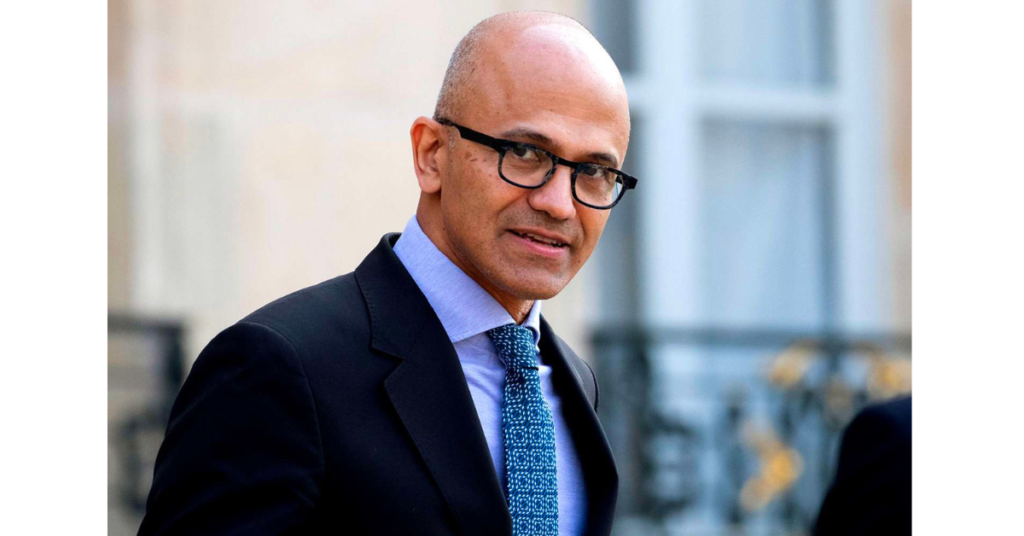Microsoft CEO Satya Nadella urges AI developers to focus on real-world impact in healthcare, education, and productivity—highlighting energy use concerns and ethical responsibility.
In a world increasingly powered—and consumed—by artificial intelligence, Microsoft CEO Satya Nadella is urging the global tech community to take a hard look at what really matters. Speaking at Y Combinator’s AI Startup School, Nadella laid down a powerful and timely reminder: AI must do more than dazzle with intelligence or compete on benchmarks. It must, above all, justify its existence by improving the lives of real people.
At the heart of his message is a simple but urgent question: Is AI truly helping humanity? For Nadella, the promise of artificial intelligence cannot be measured merely by its speed, its capabilities, or how “smart” it appears. Instead, its value must be judged by the tangible good it brings to sectors that shape our daily lives—education, healthcare, productivity, and economic upliftment.
“The real benchmark for AI progress,” Nadella asserted, “is whether it makes a real difference in people’s lives.” This isn’t just a philosophical musing. It’s a call to action in an era where companies are pouring billions into AI development, often without clear societal returns. For Nadella, the stakes are clear: AI must prove its worth.
A major thread in Nadella’s talk was the massive energy footprint of AI. As artificial intelligence systems grow more powerful and widely deployed, their appetite for energy is rising dramatically. Data centers running large language models and generative AI tools require enormous computational resources, often drawing on significant environmental resources. This, Nadella warned, is not something the industry can ignore.
“If history has taught us anything, it’s that if you’re going to use energy, you probably need social approval to do so,” Nadella cautioned. In other words, there needs to be a social contract: AI can consume energy, but only if it delivers real, measurable benefits in return.
He continued, “We simply cannot consume energy for the sake of chasing intelligence metrics.” It’s not enough, he argued, to be impressed by how many tokens a model can process or how realistic its responses are. The true test of innovation lies in impact—how many patients received faster diagnoses, how many students got personalized learning support, how many workers became more efficient thanks to intelligent systems.
Interestingly, Nadella’s comments found an unlikely ally in Tesla and X (formerly Twitter) CEO Elon Musk. Musk, who is often critical of unrestrained AI growth, shared a clip of Nadella’s speech on X with the simple caption: “True.” In an industry rife with rivalries and divergent philosophies, this agreement was a rare moment of solidarity.
Nadella’s remarks come at a time when AI developers and companies are facing increasing scrutiny—not just from regulators, but also from the public. There is growing concern over whether AI is merely a luxury toy for the tech elite or a tool that can serve the wider world. His words are a timely reminder that innovation must be responsible, inclusive, and grounded in real-world outcomes.
“The challenge before us,” he emphasized, “is to demonstrate that what we’ve built is showing up in the real world—not just in labs, not just in research papers, but in the lives of ordinary people.” Whether it’s helping farmers predict crop yields, assisting doctors with early diagnoses, or making classrooms more accessible, the focus must shift from what AI can do to what it should do.
In a world where AI’s power is growing faster than our ability to fully understand or regulate it, Nadella’s stance adds a crucial voice to the conversation: one that champions purpose over performance, and impact over hype. The message is clear—AI must earn its place in our future by proving its value in the present.

Also Read: Microsoft employee laid off after 23 years still goes to office: ‘Keen to be helpful’
ICMAI Invites CMAs for SEBI Task Force: Submit EOI for NISM Certification Course